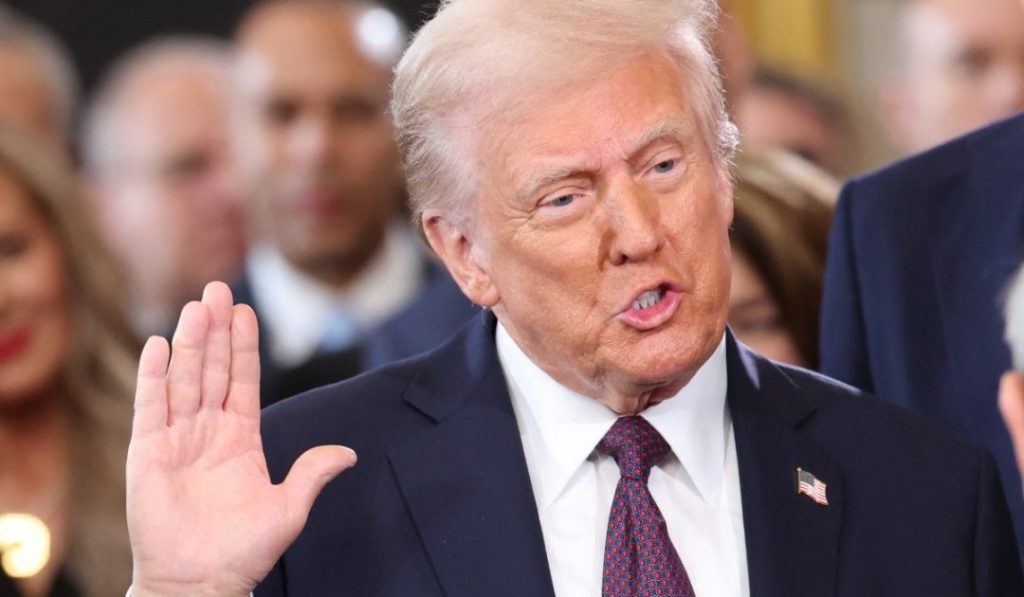Donald Trump’s recent pronouncements on the BRICS nations signal a potential resurgence of his aggressive trade policies should he return to the presidency. His threat of imposing 100% tariffs on BRICS countries if they abandon the US dollar as a means of international payment reflects a deep concern about the potential erosion of American economic hegemony. This concern, coupled with his characterization of the BRICS nations as “seemingly hostile,” suggests a confrontational stance that could dramatically reshape global trade and financial dynamics. Trump’s statement, delivered via his social media platform Truth Social, underscores his continued reliance on unconventional communication channels and his tendency towards strong, often provocative, rhetoric. The threat itself raises serious questions about the feasibility and potential consequences of such a drastic measure.
The BRICS bloc, originally comprising Brazil, Russia, India, China, and South Africa, has recently expanded to include Iran, Ethiopia, Egypt, and the United Arab Emirates, with Indonesia joining earlier this year. This expansion signifies a growing momentum towards creating a multipolar world order, challenging the dominance of the G7 nations. Trump’s threat directly addresses this challenge, aiming to stifle the BRICS countries’ ambition to establish an alternative currency and financial system. This aspiration, particularly championed by Russia in the wake of Western sanctions related to the war in Ukraine, represents a direct threat to the US dollar’s long-standing dominance in global finance. Trump’s proposed tariffs aim to deter this shift, effectively forcing BRICS nations to choose between economic integration with the US and the pursuit of financial independence.
The US dollar’s dominance in international transactions has been a cornerstone of American economic power. It allows the US to exert considerable influence over global financial flows, facilitates international trade, and provides a significant advantage to American businesses. A shift away from the dollar, particularly by a large and growing bloc like BRICS, could undermine this dominance, potentially leading to a decline in the dollar’s value and a reduction in American economic influence. Trump’s threat of 100% tariffs is a drastic attempt to prevent this scenario, essentially weaponizing trade to protect the dollar’s status. The implications of such a policy are far-reaching, potentially leading to a significant escalation of trade tensions and a disruption of global supply chains.
Trump’s previous experience with tariffs during his first term provides a glimpse into the potential consequences of his proposed policy. His imposition of tariffs on various imported goods, often justified on grounds of protecting American industries, led to trade disputes and price increases for American consumers. Economists generally agree that broad-spectrum tariffs, such as the 100% tariffs Trump is now threatening, would lead to a substantial rise in prices within the US, impacting consumers and potentially triggering inflationary pressures. Furthermore, such a move could spark retaliatory tariffs from the targeted nations, further disrupting global trade and potentially triggering a trade war with significant negative consequences for all parties involved.
The feasibility of implementing 100% tariffs on BRICS nations is also questionable. Such a drastic move would likely face significant opposition both domestically and internationally. American businesses reliant on imports from BRICS countries would experience disruptions in their supply chains and increased costs, potentially leading to job losses and economic hardship. International allies might view such a move as destabilizing and counterproductive, further isolating the US on the global stage. Moreover, the World Trade Organization (WTO) could rule against such tariffs, further complicating their implementation.
While Trump’s threat aims to protect the US dollar’s dominance, the potential consequences are significant and far-reaching. The imposition of 100% tariffs on BRICS countries could lead to a global trade war, significantly disrupt supply chains, and trigger inflationary pressures within the US. Moreover, such a drastic move could further alienate international allies and undermine the US’s standing in the global community. The feasibility and long-term effectiveness of such a policy remain questionable, raising serious concerns about the potential economic and geopolitical ramifications. The situation underscores the ongoing tension between maintaining the existing global financial order and the rising desire for a more multipolar world, with the US dollar’s future role at the center of this complex and evolving dynamic.


